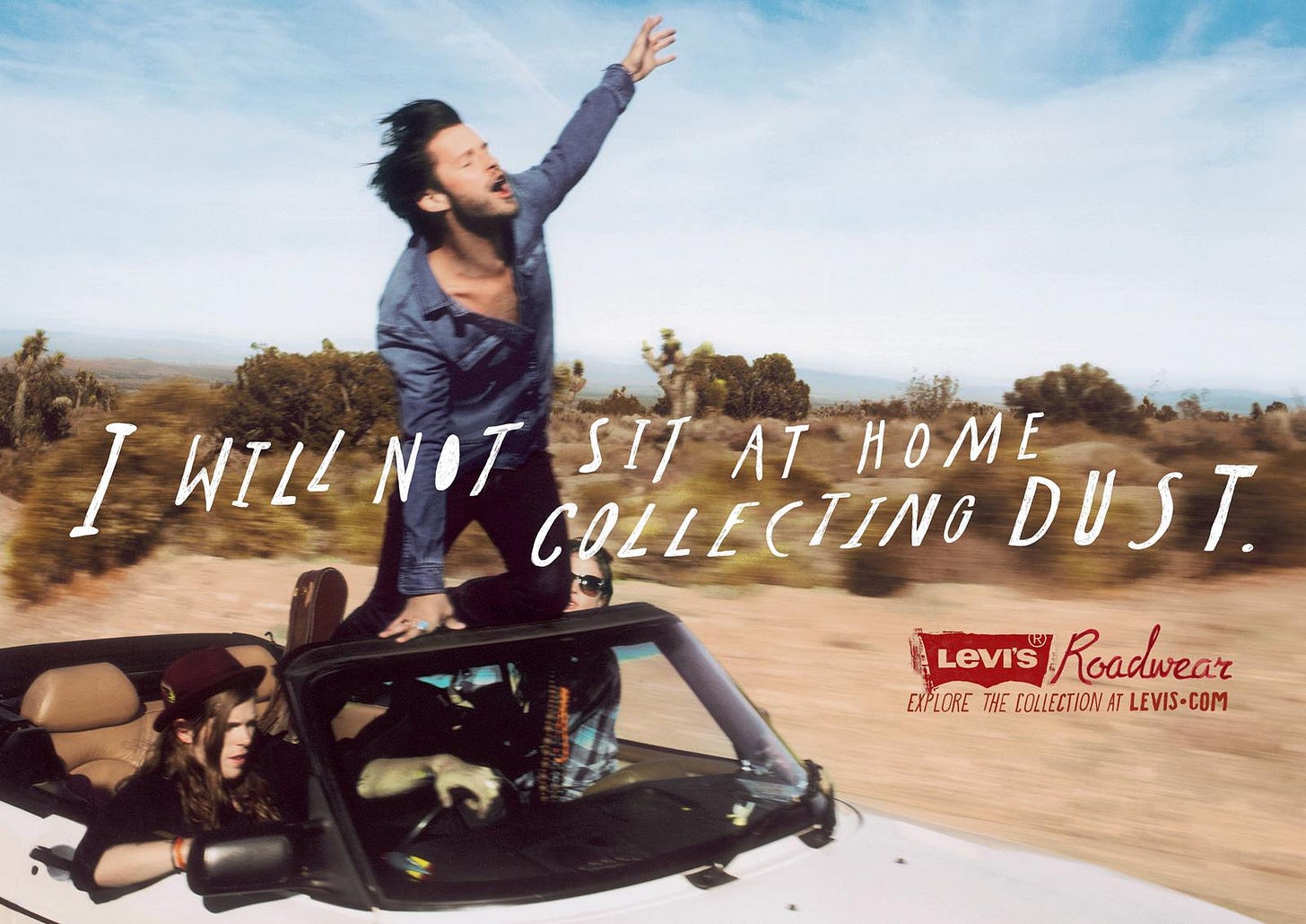For ten years I have been trying to understand why brands have a hold on us and what we - typical consumers - can do about it.
First of all, consumers are people. And people crave relationships. We are designed for stories and connection and community to help orient our winding way through life.
As the fabric of society becomes less tangible and more ethereal as we move our relationships and stories and connection to the internet (ironic meeting you here), our desire for stories and connection and community does not change. But where we receive our fill does.
We become more comfortable engaging in the *idea* of stories and connection and community.
This is one hypothesis I have as to the rise of companies’ roles in our lives through their personification of camaraderie and conciergeship - in other words - their brands.
Many of us form relationships with brands. We consume stories from brands, we glean existential inspiration from brands, and we hope that by buying whatever the brand is selling… we can live a certain way and we can become a certain thing. We adopt their identity as our own.
All of this is manufactured.
The insatiable consumer desire. The personification of the corporation. None of it thrives outside of an economic system demanding constant growth, or a world in which we are increasingly physically disconnected from the stories and connection and community of other people.
The context is ripe for brands-as-friends, and brands as salve to our deepest desires. And that’s an awful lot to put on a boardroom of 20 and 30 and 40 and 50 somethings running the marketing efforts of a large corporation.
For ten years I’ve been peeking behind the curtain. Working in corporate marketing roles like merchandising, product development, brand management, and consumer research. I also have a PhD in marketing, earned after four years of reading, writing, teaching, and researching the phenomenon of consumer culture. Despite any experience or credentials, I still don’t have this sorted out.
Our relationship with brands is confusing by design.
Brands are myths. The work of Roland Barthes, a mid-century French semiotician, (i.e., interpreter of connotative meanings) shows how myths purposely contort the truth of the matter. They reveal just enough truth - just enough reality - to make you think “surely this is the natural ways things are.” Meanwhile, meanings are manipulated under the surface, slipping by unnoticed yet influencing our culture and our selves.
Until you pull back the curtain.
My hope is that once we identify what brands are, and what brands are selling - we can understand why we buy, and if we should continue.







I really love what you are starting to uncover here Sarah. It is so easy to be fed through the marketing machine without realising what you are actually involved in. I'm here for waking up, being more aware and making a conscious choice about participating in my consumer relationships.